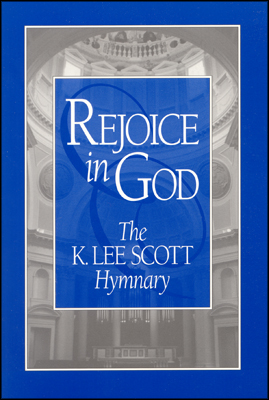
1830 - 1894 Person Name: Christina Rossetti Hymnal Number: 12 Author of "Love Came Down at Christmas" in Rejoice in God Rossetti, Christina Georgina, daughter of Gabriel, and sister of Dante Gabriel and William Michael Rossetti, was born in London, Dec. 5, 1830, and received her education at home. Her published works include:—
(1) Goblin Market, and Other Poems, 1862; (2) The Prince's Progress, and Other Poems, 1866 ; (3) Poems, mainly a reprint of Nos. 1 and 2, 1875; (4) A Pageant, and Other Poems, 1881, &c.
In addition, Miss Rossetti has published several prose works, as:— Annus Domini (a book of prayers for every day in the year), 1874; Letter and Spirit of the Decalogue, 1883, and others. She has written very few hymns avowedly for church worship, but several centos have been compiled from her poems, and have passed into several hymn-books. These include:—
1. Dead is thy daughter, trouble not the Master. The raising of Jairus's daughter. From her Goblin Market, &c, 1862, into Lyra Mystica, 1865.
2. God the Father, give us grace. Invocation of the Holy Trinity. From Lyra Mystica into the Savoy Hymnary, for use in the Chapel Koyai, Savoy (see No. 8 below).
3. I bore with thee long weary days and nights. The Love of Christ. From her Goblin Market, &c, 1862, into Lyra Messianica, 1864.
4. I would have gone, God bade me stay. Resignation. From her Poems, Hymns, 1884, &c. 1875, into Horder's Congregational Hymns.
5. Once I thought to sit so high. A Body hast Thou prepared Me, or Passiontide. Contributed to Lyra Eucharistica, 1863.
6. The Advent moon shines cold and clear. Advent. From her Goblin Market, &c, 1862.
7 The flowers that bloom in sun and shade. The Eternity of God. In Mrs. C. Brock's Children's Hymn Book, 1881.
8. What are these that glow from afar? Martyrs. Part of the poem "We meet in joy though we part in sorrow," which appeared in Lyra Mystica, 1865, and then in Miss Rossetti's Prince's Progress, &c, 1866. It is the most widely used of her hymns. No. 2 above is also from the same poem.
Miss Rossetti's verses are profoundly suggestive and lyrical, and deserve a larger place than they occupy in the hymnody of the church. Her sonnets are amongst the finest in the English language. [Rev.W. Garrett Horder]
--John Julian, Dictionary of Hymnology (1907)
==============
Rossetti, Christina G., p. 978, i. The following hymns by Miss Rossetti have recently come into common use:—
1. A burdened heart that bleeds and bears. [Lent.] In her Time Flies: A Reading Diary, ed. 1897, p. 59, for March 26; and her Verses, &c., ed. 1898, p. 113. Included in Church Hymns, 1903.
2. Give me the lowest place, not that I dare. [Humility.] From her Prince's Progress, 1866, p. 216.
3. In the bleak midwinter. [Christmas.] In her Poetical Works, 1904, p. 246, as "Before 1872"; repeated in The English Hymnal, 1906.
4. None other Lamb, none other Name. [Jesus, All, and in All] From her The Face of the Deep, &c, 1892 (3rd ed. 1895, p. 176); and her Verses, &c, 1898, p. 36. It is the second of two poetical meditations on Rev. v. 6. In Church Hymns, 1903.
5. The shepherds had an angel. [Christmas.] In her Poetical Works, 1904, p. 187, this is entitled "A Christmas Carol. For my Godchildren," and dated 6 October, 1856. Repeated in the Sunday School Hymnary, 1905.
6. We know not a voice of that River. [The River of the Eternal City.] In The Face of the Deep, &c, 1892 (3rd ed. 1895, p. 523), as a poetical meditation on Rev, xxii. Also in her Verses, &c., 1898, p. 81.
Additional works by Miss Rossetti to those named on p. 978, i., include Time Flies A Reading Diary, 1885; Called to be Saints, 1881; Seek and Find, 1879; The Face of the Deep, A Devotional Commentary on the Apocalypse, 1892; and Verses ... reprinted fromCalled to be Saints, Time Flies, The Face of the Deep, 1893. It must be noted that (1) the hymn attributed to her, "Dead is thy daughter; trouble not the Master," is not by her, but by Mrs. C. F. Alexander, with whose name it appeared in Lyra Mystica, 1865; and (2) her “I would be gone; God bade me stay," is from her Prince's Progress, 1866, p. 204. Miss Rossetti d. Dec. 29, 1891.
--John Julian, Dictionary of Hymnology, New Supplement (1907)
Christina Georgina Rossetti


